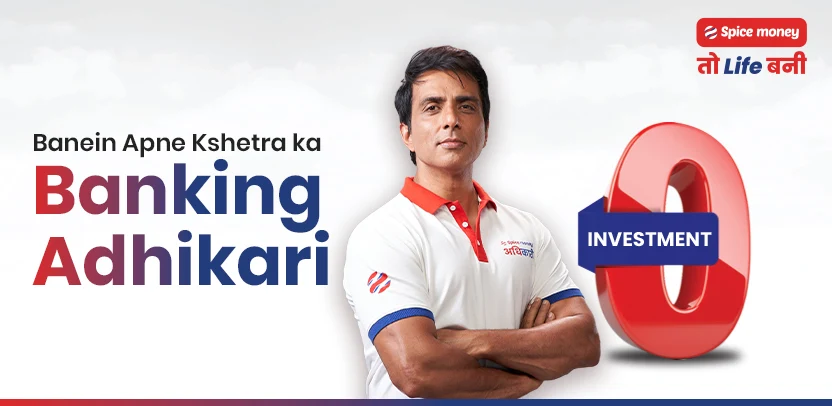The role of a Corporate Banking Correspondent has become essential in connecting financial institutions to remote and underserved regions. With increasing demand for inclusive financial services, this role ensures that basic banking facilities reach even the most rural corners. If you’re exploring a way to contribute to financial accessibility while building a sustainable livelihood, becoming a Banking Correspondent can be a practical career option.

Understanding the Role of a Corporate Banking Correspondent
A Corporate Banking Correspondent acts as a bridge between financial institutions and the unbanked population. The role involves delivering basic banking services such as account opening, deposits, withdrawals, and fund transfers. This is done using digital technology or mobile devices, often outside of traditional bank branches.
While the term “corporate” refers to working under an agency or institution that partners with banks, the work is usually carried out in villages, small towns, or urban localities where bank branches are limited or non-existent.
Eligibility Criteria and Basic Requirements
To become a Banking Correspondent, candidates must meet certain general conditions:
1. Minimum Educational Qualification
- A basic qualification of 10th or 12th pass is generally required.
- Some financial entities may prefer higher education or familiarity with digital tools.
2. Age Limit
- The typical age requirement ranges from 18 to 60 years.
- The candidate should be physically and mentally fit to perform financial services.
3. Location Preference
- Preference is often given to residents of the area where services are to be provided.
- Local candidates tend to have a better understanding of the community’s financial behavior.
4. Technical Equipment
- Access to a smartphone or computer is essential.
- Reliable internet connectivity or mobile network is necessary for transaction processing.
Skills Required to Succeed as a Banking Correspondent
A successful Corporate Banking Correspondent should possess:
1. Basic Financial Knowledge
- Understanding of basic banking services like deposits, withdrawals, and fund transfers.
2. Customer Service Approach
- Ability to explain financial products in simple terms to people unfamiliar with banking.
3. Digital Literacy
- Operating mobile apps or handheld devices for transactions.
- Troubleshooting minor technical issues independently.
4. Record Keeping
- Maintaining proper documentation of transactions and customer onboarding.
Step-by-Step Process to Become a Corporate Banking Correspondent
Step 1: Identify Banking Partners or Aggregators
Start by connecting with institutions that appoint Banking Correspondents. These could be large corporations or local agencies authorized by financial institutions. They provide the necessary training and technological tools for your work.
Step 2: Complete Registration and Background Verification
Once you apply, you’ll need to:
- Submit identification and address proof.
- Provide educational qualification certificates.
- Undergo a background check and verification process.
Step 3: Training and Orientation
Training is usually provided by the agency or partner bank and includes:
- Use of devices and mobile apps.
- Customer service practices.
- Knowledge of regulatory compliance and KYC norms.
Step 4: Onboarding and Deployment
After training, you’ll be assigned a location based on your preference and area requirement. You’ll be provided a login ID and secure access to the financial network to start offering services.
Daily Activities and Responsibilities
As a Banking Correspondent, your responsibilities include:
- Opening savings accounts and assisting with document collection.
- Collecting deposits and enabling withdrawals through biometric authentication or OTP-based services.
- Facilitating fund transfers, loan repayments, and bill payments.
- Educating customers on financial literacy and product awareness.
- Ensuring timely submission of reports and transaction logs to your agency or bank.
Earnings and Business Scope
The income of a Corporate Banking Correspondent depends on the volume of transactions and services provided. Generally, earnings are commission-based. The more services you deliver, the better your income potential.
Additionally, correspondents may expand their scope by offering:
- Insurance premium collection
- Micro-loan processing support
- Utility bill payments
- Pension disbursal services
This makes it a sustainable source of income in semi-urban and rural locations, where formal banking infrastructure is sparse.
Advantages of Becoming a Corporate Banking Correspondent
1. Low Investment Opportunity
You do not need a large investment to start. Most agencies provide equipment on a rental or subsidized basis.
2. Local Entrepreneurship
This opportunity promotes local employment and helps in community development by providing access to essential banking services.
3. Flexible Working Hours
You can operate within your convenience while adhering to bank service timelines, offering flexibility in your schedule.
4. Social Impact
You contribute directly to financial inclusion and help underserved populations participate in the formal economy.
Challenges to Be Aware Of
Though rewarding, this role may present some challenges:
- Technical issues like device failure or network outage.
- Customer distrust in digital transactions in remote areas.
- Need for regular system updates and compliance checks.
Preparation and training can help overcome these barriers effectively.
Conclusion
Becoming a Corporate Banking Correspondent is a practical way to build a career in financial services while contributing to inclusive growth. The role blends community engagement with digital financial services, making it relevant in today’s push for broader financial access. With the right attitude, minimal investment, and basic training, anyone can take on this responsibility and make a difference.
The role of a Banking Correspondent is more than a job—it’s a service that builds financial awareness and trust in areas often overlooked by traditional systems. If you’re looking for a meaningful income source that supports both your community and your professional goals, this could be a promising path to explore.